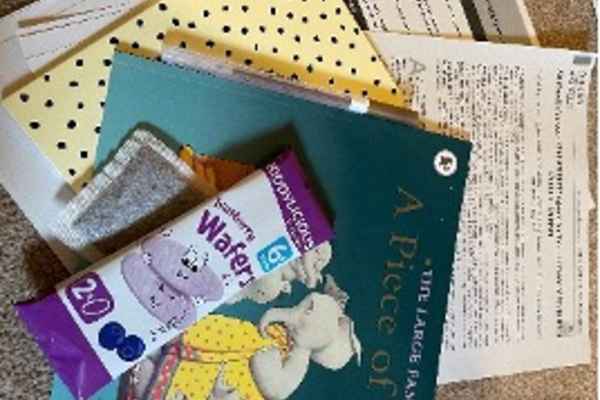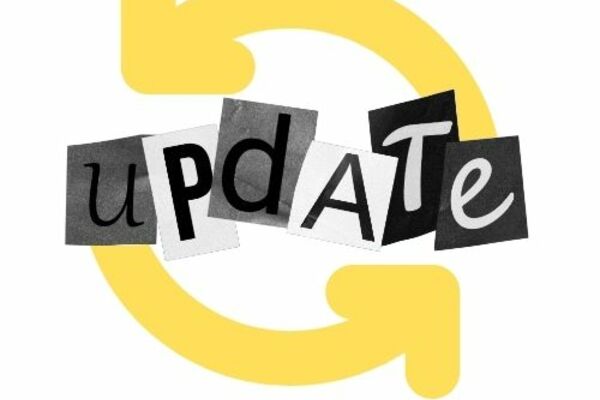

I applied for a grant from PEDSIG back in January and I was so grateful to be awarded it. My project has been a slow-burning, labour of love over many years and the grant from PEDSIG helped me bring my idea to fruition.
I’m a trainee who has been in the system now for a substantial number of years. Many of my peers at ST1 are now my bosses. This is because between 2013 and 2018 I spent three years on maternity leave, and several months on sick leave after a particularly stressful life event. Between my periods of absence from work and the way in which less than full time training puts the brakes on your progress on the training treadmill, it’s taken me a while to move through the system.
My experiences of career breaks ignited a passion in me. Whilst I was away from the workplace, I felt very disconnected from my career. I missed talking about paediatrics, discussing new developments and the chance to connect with likeminded colleagues at work. I felt out of the loop and left behind from a world by which I had defined myself for the previous few years. That’s not to say I didn’t love my time with my babies – I did – but I also missed the challenge of doing something other than discussing nap schedules and baby poo with my mum friends.
I waited until my youngest was in school to apply for the New Cross paediatric simulation fellow job. It was a full-time post, and I wasn’t ready to take on extra hours before then. But even before I applied, I knew what I wanted to develop during my post. Since my first maternity leave, I had dreamed of providing an educational programme for other trainees who were out of programme and looking for something to reconnect them to their career. My wonderful supervisor, Dr Annabel Copeman, already knew what I was planning. We had discussed it on several occasions when our paths had crossed; mainly when I was attending her return-to-work simulation courses at the end of successive maternity leaves!
Shortly after starting the simulation post, I had developed a format for the course. The day-long educational programme would be made up of two parts. The first half was self-directed learning which candidates could undertake flexibly. Each candidate would receive a pre-course pack, which contained everything they need to prepare for the afternoon contact session. I also enclosed some contents to help our candidates feel connected to, cared for, and valued by their paediatric colleagues whilst they are away from work. (see picture)
The afternoon session would be undertaken virtually for two reasons. Firstly, it would maximise access to parents of young babies who may still be feeding frequently or may not separate from their primary caregivers easily for long periods of time. Secondly, it would minimise the costs of providing the course.
In terms of contents, our activities included:
- a reflective discussion of a topical media article related to paediatrics
- a case presentation of an interesting case
- a simulated communication scenario with a parent
- a journal club discussion of a recently published article
- discussion of a recently updated guideline or change in practice
Coming up with content was easier than deciding on a course name. Thankfully, my paediatric simulation fellow colleague, Shosh Layman, was on hand to come up with UPDATES – Updating Paediatric Doctors About recent Topics and Events through Simulation. I have her to thank for the course logo too!
The simulation team at SimWard Wolverhampton were supportive, encouraging, and keen to help me get the project off the ground. Karishma Mann, our sim ward lead, helped with room bookings, IT support and providing a member of faculty to facilitate the simulation aspect of the course.
Annabel and I ran the idea past some trainees who were on maternity leave to scout out if there was an appetite for what we were planning. The informal confirmation that some trainees would be interested cemented our plans – the only sticking point remaining was funding it.
And that’s where the PEDSIG grant came in. This funding contributed towards running a pilot of three courses. A total of 13 candidates attended, with between 3 and 6 candidates attending each course. I advertised the course to all trainees who are out of programme for any reason from paediatrics in the West Midlands. Whilst most of the candidates who attended were on parental leave, 3/13 were on other types of career breaks. Every candidate who attended expressed gratitude for the course, and some of the individual comments received were humbling.
"Excellent choice of subjects. Relevant, interesting and supportive environment to encourage learning. I really appreciated being able to study the pre-course material ahead of time then have the afternoon session virtually to make child care easier (my father-in-law looked after both children by himself for the first time, which he wouldn’t have done without me here!) Thank you"
"I received my pre course material and the lovely goodies through the post and just wanted to say a massive thank you! I was really touched by your kindness to include the book and snack for my boy, as well as the little extras for me. It's the small things like this which really make a big difference…this reminded me there are people who do genuinely care, so thank you!"
This pilot has allowed us to collect overwhelmingly positive feedback about the course content, programme and delivery methods used. Due to its success, we are hopeful we can acquire regional funding to continue to deliver this course for paediatricians in the West Midlands on a long-term basis. I am in talks with different medical specialities in my local hospital to get equivalent courses set up for other specialities locally and would love to share the paediatric course with other regions as I think it would be possible to replicate the UPDATES course across other areas of the country.
If you are a paediatrician from another region who thinks you would be interested in setting up a similar course for your area, please do get in touch. You can email me on [email protected] or DM on twitter (@drcatbt) I am willing to share the format, course materials, simulation cases and my experiences with others who wish to provide similar educational opportunities for other doctors who are out of programme. I would love to make UPDATES available to all paediatric trainees across the UK.
Dr Catherine Beatty


